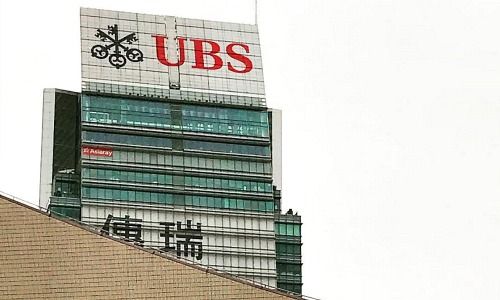UBS: Following Julius Baer's Example?
UBS is sticking to its strategy despite a modest performance. Shareholders are not overly pleased.
The management of UBS has frequently been presented with the demand to do something about its investment bank. The call to split up the Swiss No. 1 has also come up in equal measure – with Eric Knight, the activist investor, receiving a lot of attention for his campaign launched in 2013.
The bank’s response remained unequivocal. Since Chief Executive Sergio Ermotti cut the investment bank to size in 2012 and turned it into a support unit for wealth management, UBS remained adamant that a global wealth manager had to run a global investment bank.
Investment Bank Conundrum
But investors seem to become unsettled given the failure of UBS’ stock to emerge from a deep trough. Analysts at Britain’s Barclays recently noted that investors they had been talking to voiced their frustration about the failure of UBS to generate higher returns.
The Barclays team of Amit Goel asked in their report whether UBS really should retain an investment bank that absorbed a third of its equity. The analysts also questioned whether the U.S. wealth management was in the right hands at UBS.
Capital Wiped Out
UBS has always maintained that the investment bank was of prime importance for a client group crucial for its success as a bank: the super-rich – ultra-high-net-worth individuals or UHNWI – a limited number of people that all global banks are fighting over.
The Barclays analysts claim that banking with UHNWI indeed was a profitable business. The capital used to back up the investment bank however wiped out the returns the bank generated with the UHNWIs.
Surplus to Requirements?
The analysis allows for two conclusions: either the business with the rich is less lucrative than believed because it requires a lot of capital for the investment bank. The investment bank is a prerequisite for banking with the rich but its capital requirements have not been considered in the equation so far.
Alternatively, if UBS were to be able to retain its richest clients even without the investment bank it simply would be surplus to requirements. The question then would be why to keep a unit that generates lower returns and which is one of the reasons for a low stock market valuation.
Smaller, But More Profitable?
UBS may have to consider trimming its business to become more profitable. The analysts in London used the example of Julius Baer, which has a much smaller offering yet generates a higher return.
Ermotti has not shown a penchant for radical steps so far. A decision to shift UBS in a new direction altogether or selling an entire division doesn’t seem to be on the cards.
Not Much Time Left
But Ermotti, his Chairman Axel Weber and their crew may not have much time left to satisfy their shareholders, who otherwise will grow even much more frustrated, say Barclays’ analysts.




























